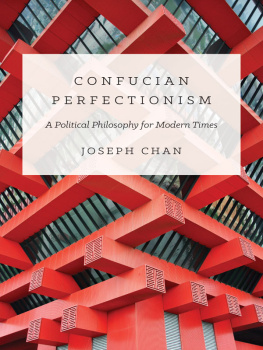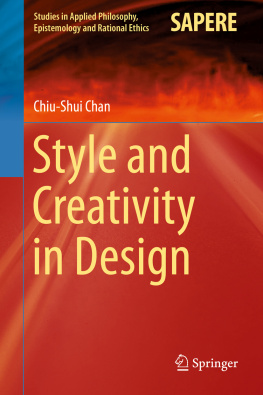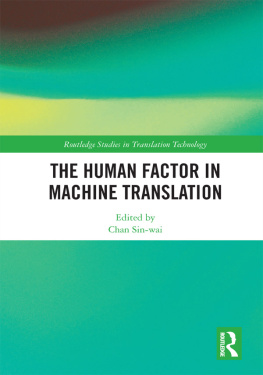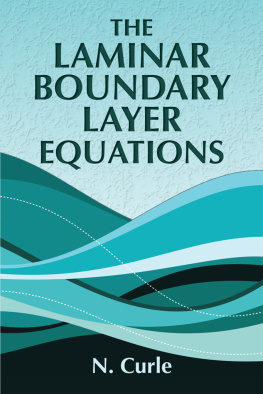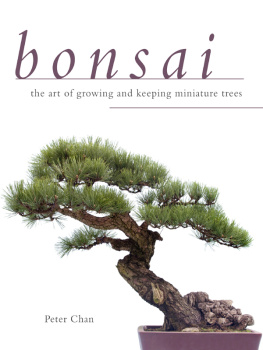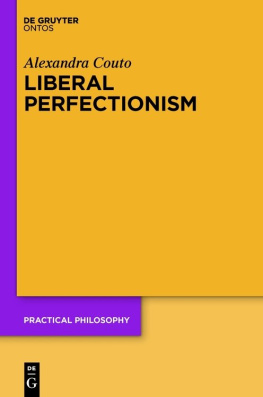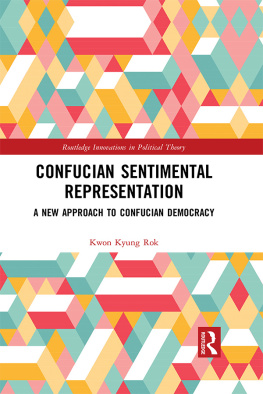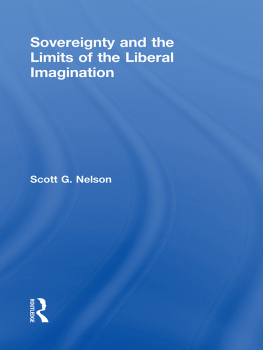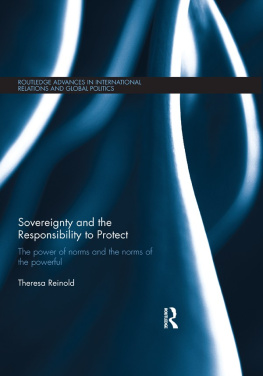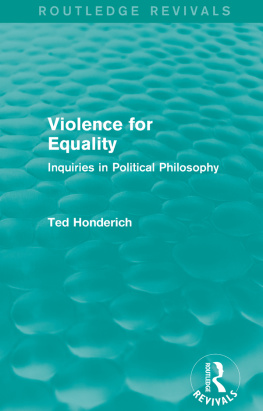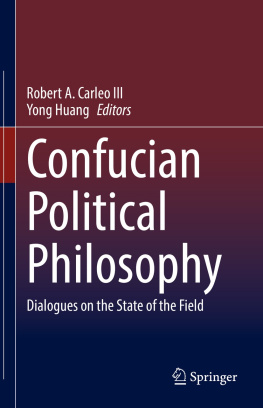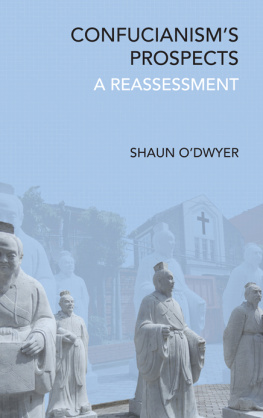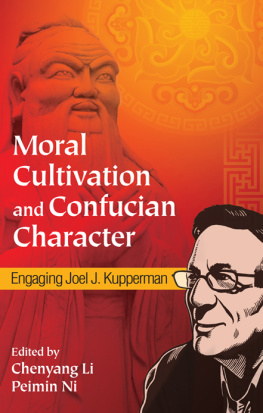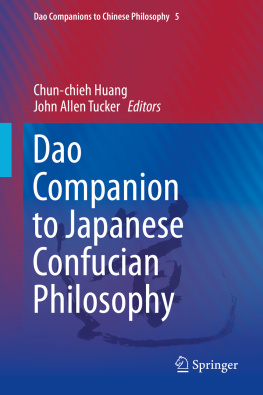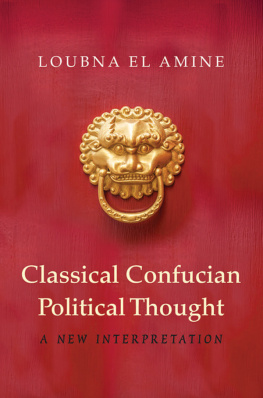Chan - Confucian perfectionism: a political philosophy for modern times
Here you can read online Chan - Confucian perfectionism: a political philosophy for modern times full text of the book (entire story) in english for free. Download pdf and epub, get meaning, cover and reviews about this ebook. City: China, year: 2017;2013, publisher: Princeton University Press, genre: Politics. Description of the work, (preface) as well as reviews are available. Best literature library LitArk.com created for fans of good reading and offers a wide selection of genres:
Romance novel
Science fiction
Adventure
Detective
Science
History
Home and family
Prose
Art
Politics
Computer
Non-fiction
Religion
Business
Children
Humor
Choose a favorite category and find really read worthwhile books. Enjoy immersion in the world of imagination, feel the emotions of the characters or learn something new for yourself, make an fascinating discovery.
- Book:Confucian perfectionism: a political philosophy for modern times
- Author:
- Publisher:Princeton University Press
- Genre:
- Year:2017;2013
- City:China
- Rating:4 / 5
- Favourites:Add to favourites
- Your mark:
- 80
- 1
- 2
- 3
- 4
- 5
Confucian perfectionism: a political philosophy for modern times: summary, description and annotation
We offer to read an annotation, description, summary or preface (depends on what the author of the book "Confucian perfectionism: a political philosophy for modern times" wrote himself). If you haven't found the necessary information about the book — write in the comments, we will try to find it.
Chan: author's other books
Who wrote Confucian perfectionism: a political philosophy for modern times? Find out the surname, the name of the author of the book and a list of all author's works by series.
Confucian perfectionism: a political philosophy for modern times — read online for free the complete book (whole text) full work
Below is the text of the book, divided by pages. System saving the place of the last page read, allows you to conveniently read the book "Confucian perfectionism: a political philosophy for modern times" online for free, without having to search again every time where you left off. Put a bookmark, and you can go to the page where you finished reading at any time.
Font size:
Interval:
Bookmark:

Confucian Perfectionism
THE PRINCETON-CHINA SERIES
Daniel A. Bell, Series Editor
The Princeton-China Series aims to publish the works of contemporary Chinese scholars in the humanities, social sciences, and related fields. The goal is to bring the work of these important thinkers to a wider audience, foster an understanding of China on its own terms, and create new opportunities for cultural cross-pollination.
___________________________________
Ancient Chinese Thought, Modern Chinese Power, by Yan Xuetong, translated by Edmund Ryden
A Confucian Constitutional Order: How Chinas Ancient Past Can Shape Its Political Future, by Jiang Qing, edited by Daniel A. Bell and Ruiping Fan, translated by Edmund Ryden
Confucian Perfectionism
A Political Philosophy for Modern Times
Joseph Chan
PRINCETON UNIVERSITY PRESS
Princeton and Oxford
Copyright 2014 by Princeton University Press
Published by Princeton University Press, 41 William Street, Princeton, New Jersey 08540
In the United Kingdom: Princeton University Press, 6 Oxford Street, Woodstock, Oxfordshire OX20 1TW
press.princeton.edu
All Rights Reserved
Cloth ISBN: 978-0-691-15861-7
Paper ISBN: 978-0-691-16816-6
The Library of Congress has cataloged the cloth edition of this book as follows:
Chan, Joseph Cho Wai, 1960
Confucian perfectionism : a political philosophy for modern times / Joseph Chan.
pages cm. (Princeton-China series)
Summary: Since the very beginning, Confucianism has been troubled by a serious gap between its political ideals and the reality of societal circumstances. Contemporary Confucians must develop a viable method of governance that can retain the spirit of the Confucian ideal while tackling problems arising from nonideal modern situations. The best way to meet this challenge, Joseph Chan argues, is to adopt liberal democratic institutions that are shaped by the Confucian conception of the good rather than the liberal conception of the right. Confucian Perfectionism examines and reconstructs both Confucian political thought and liberal democratic institutions, blending them to form a new Confucian political philosophy. Chan decouples liberal democratic institutions from their popular liberal philosophical foundations in fundamental moral rights, such as popular sovereignty, political equality, and individual sovereignty. Instead, he grounds them on Confucian principles and redefines their roles and functions, thus mixing Confucianism with liberal democratic institutions in a way that strengthens both. Then he explores the implications of this new yet traditional political philosophy for fundamental issues in modern politics, including authority, democracy, human rights, civil liberties, and social justice. Confucian Perfectionism critically reconfigures the Confucian political philosophy of the classical period for the contemporary eraProvided by publisher.
Includes bibliographical references and index.
ISBN 978-0-691-15861-7 (hardback)
1. Political scienceChinaPhilosophy. 2. ConfucianismPhilosophy. 3. Philosophy, Chinese. I. Title.
JA84.C6C468 2013
320.01dc23
2013022474
British Library Cataloging-in-Publication Data is available
This book has been composed in Minion Pro
Printed on acid-free paper.
Printed in the United States of America
For Sharifa
CONTENTS
FOREWORD BY SERIES EDITOR
The first two books in the Princeton-China seriesby Yan Xuetong and Jiang Qingwere written by influential Chinese intellectuals in mainland China. Yan and Jiang use values and concepts in ancient Chinese political thought to draw implications for social and political reform in China today. Yans book is meant to provide standards for evaluating Chinas foreign policy, and Jiangs is meant to provide standards for evaluating domestic constitutional reform in China. Joseph Chans book also draws on values and concepts in ancient Chinese political thought, but he integrates them with arguments and theories developed in the West. Chan has spent most of his life in the more liberal environment of Hong Kong, a hybrid society that has shaped his intellectual and normative orientations:
The kind of society I grew up in provided me with the natural soil to adopt integration thinking. Hong Kong became a British colony after the First Opium War (183942). To many Hong Kong people, the colonial rule from 1842 to 1997 was both a curse and a blessing: curse because the local Chinese were unjustly discriminated against by the British; and blessing because the colony provided a relatively safe haven from the civil wars in China, and from the economic and political turmoil of the first three decades of communist rule since 1949. As the colony started to take off economically and politically in the 1970s, Hong Kong people began to experience the benefits of albeit limited civil liberties and participation, the rule of law, as well as the vitality and prosperity of market capitalism. At the same time, the local traditional, Confucian Chinese culture was largely left untouched by colonial noninterventionist policiesunlike in mainland China, where it was denounced by the entire society in government-led campaigns. Many Hong Kong peoples experience of Chinese Confucian culture was positive, and that of British culture not negative, despite its domination through colonial rule. What they experienced was not so much a clash of cultures as their mutuality. Through persistence, creativity, and pragmatism, the men and women of Hong Kongboth Chinese and Britishturned what would otherwise be dogmatic antagonism into productive integration. (Joseph Chan, Notes on the Methods of Philosophical Reconstruction, 2012)
Chan was brought up in a Cantonese-speaking household. He did an undergraduate degree at the Chinese University of Hong Kong and won a scholarship to pursue graduate studies at the University of Oxford. At Oxford he sharpened his analytical skills and wrote a doctoral thesis on Aristotles political philosophy. He returned to teach at the University of Hong Kong in 1990 and has been teaching there since then. Chan published several articles on Western political philosophy in leading journals, such as Philosophy and Public Affairs and Ethics, and also began to immerse himself in the Confucian tradition.
Hong Kong was the base for major Confucian philosophy in the twentieth century, and great thinkers such as Mou Zongsan wrote works that integrated modern Western and traditional Chinese traditions. Mou, however, was influenced primarily by continental European philosophy, and he was most concerned by metaphysical issues. His writing style was often difficult and dense, if not impenetrable. In contrast, Chan has been influenced by the Oxford analytical tradition, with its emphasis on clarity and rigor of argumentation, and his concerns are more directly political (another difference is that Mou wrote academic works in Chinese, while Chan can write in both Chinese and English). Rather than aiming to provide a brand new metaphysical theory that would underpin social and political thinking, Chan engages in what he calls piecemeal appropriation and reinterpretation of the Confucian tradition, with detailed argumentation for why and how parts of the Confucian tradition can enrich liberal democratic thinking (and vice versa). Chans project may be less ambitious than Mous, but it does not rest on any one foundation that can be chopped away to undermine the whole work.
This book draws on more than two decades of thinking about how Confucian political philosophy can be modernized and enrich liberal democratic theories and political practices. Chan aims to defend liberal democratic political institutions, but he asserts that traditional liberal arguments for those institutions need to be modified and enriched by integrating modernized Confucian values. In that sense, his theory is more universal compared to both theories that draw exclusively (or mainly) from Chinese political theory and theories that draw exclusively (or mainly) from theories developed in Western societies. The book thus poses a challenge not only to Western liberals who argue that their universal theories and values are applicable in China, but also to Western liberals who argue that their theories and values best fit Western societies. Just as Chinese should be open to the possibility that Western liberal ideas can improve political thinking and practice in China, so too Westerners should be open to the possibility that Confucian ideas can improve political thinking and practice in Western societies. Chans book is thus an outstanding and original contribution that will challenge traditional ways of political theorizing in both China and the West.
Next pageFont size:
Interval:
Bookmark:
Similar books «Confucian perfectionism: a political philosophy for modern times»
Look at similar books to Confucian perfectionism: a political philosophy for modern times. We have selected literature similar in name and meaning in the hope of providing readers with more options to find new, interesting, not yet read works.
Discussion, reviews of the book Confucian perfectionism: a political philosophy for modern times and just readers' own opinions. Leave your comments, write what you think about the work, its meaning or the main characters. Specify what exactly you liked and what you didn't like, and why you think so.

